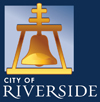Q: What is Measure Z?
A: Measure Z is a one-cent transaction and use tax (similar to the sales tax), with revenues going directly to the City of Riverside. Measure Z was approved by voters on November 8, 2016 to help pay for critical unfunded City programs and services.
Q: What was the intent of Measure Z?
A: The Riverside Mayor and City Council placed Measure Z on the ballot, at the recommendation of City staff, to help restore as much as possible of the $11 million in critical services eliminated in June 2016, as well as to start addressing over $40 million of other critical needs, such as first responder staffing and vehicles, road and tree maintenance, and building repair and maintenance. Please click here for a summary of items comprising the $11 million reduction, along with the additional $5 million in annual “managed savings” reductions to maintain a balanced budget. This link details the $11 million budget cuts by department. Follow this link to see the list of the unfunded needs by department, and here for highlights of the most critical needs.
The ballot presented to voters asked them to consider a yes or no vote to “prevent cutting police, firefighters, paramedics, 911 emergency response, anti-gang/drug programs, homelessness reduction and youth after-school/senior/disabled services; to repair local streets/potholes/infrastructure; and to provide other general services, shall a one-cent transaction and use tax (sales tax) be implemented providing $48,000,000 annually through 2036 unless extended by the voters, requiring independent audits with no funds to Sacramento, all funds remaining for Riverside?”. Follow this link to see the voting results.
Q: Prior to Measure Z’s passage, the City eliminated nearly $11 million from the City budget, including essential programs and services. What were these cuts?
A: In order to address a structural (meaning ongoing) shortfall in the City’s finances, the City eliminated a number of critical positions and services, including:
- 17 police and 7 fire positions;
- Community livability services provided by the Police Department, City Attorney’s Office, and Community and Economic Development Department;
- Landscape services and signal repairs;
- Three Innovation and Technology positions, and three positions in the City Manager’s Office.
In addition to the $11 million in permanent reductions, the City Council authorized over $5 million in annual “managed savings” reductions to help maintain a balanced budget. Many of these reductions also impact services, particularly in public safety. Please click here for a summary of items comprising the $11 million reduction, along with the additional $5 million in annual “managed savings” reductions to maintain a balanced budget. This link details the $11 million budget cuts by department.
Q: Before the November 2016 election, the City identified critical unfunded needs, at least some of which could be addressed with additional tax revenue. What are they?
A: In February-May 2016, each City department presented to the City Council, as well as to the community in neighborhood meetings, their assessment of critical needs that the City currently does not fund or significantly underfunds, jeopardizing the future quality of life in Riverside and the quality of municipal services. These needs are estimated at over $40 million annually, and do not include construction of new facilities such as the Main Library or the downtown Police headquarters. Highlights include:
- Funding for repair and replacement of first responder vehicles (police and fire);
- Addition of 60 police officers – which would still keep Riverside’s police officer count significantly below the West Coast average;
- Repair and maintenance of City facilities, such as police and fire stations, recreation centers and libraries, the Convention Center and the Fox Theater, and many others; and
- Street repair and maintenance.
Follow this link to see the list of the unfunded needs by department, and here for highlights of the most critical needs.
Q: When does the additional 1% transaction and use tax authorized by Measure Z take effect?
A: The new rate will go into effect on April 1, 2017. At that time, the combined total Riverside sales tax rate will become 8.75%.
Q: When will the City start receiving the additional tax revenue?
A: The majority of the funds will be received starting July 1, 2017, but the City expects to begin receiving some money in May and June 2017.
Q: How much money is the City going to get?
A: The City expects to receive approximately $50 million per year.
Q: What will the City spend the money on?
A: As discussed above, Measure Z was placed on the ballot to help address as much as possible of the recent service cuts, and the unfunded critical needs. The City Council approves the City budget and will ultimately decide how Measure Z revenues are spent, based on information from staff and input from constituents. Also for the first time this year, the City is adding a further level of scrutiny through the creation of a new Budget Engagement Commission, which will meet and make recommendations to the City Council on what the new funds should be spent on. For information on the Budget Engagement Commission, please follow this link.
View Upcoming Budget Engagement Commission & City Council Meetings
Q: How will the Measure Z funds be accounted for?
A: Measure Z funds will be deposited and tracked in a separate fund in the City budget and will be subject to an annual independent audit.
Q: How can I, as a resident or business owner, get involved?
A: Like always, residents and business owners can provide their input by contacting their City Council member or by attending any City Council meeting. Residents and business owners who would like to serve on the Budget Engagement Commission can find an application on the City’s website - https://www.riversideca.gov/cityclerk/boards-commissions/budget-engagement-commission – or from the City Clerk’s Office in City Hall, 3900 Main Street. Lastly, you are encouraged to contact via email City Manager’s staff assigned to the Budget Engagement Commission: Ruby Castillo at rastillo@riversideca.gov or call (951) 826-5888.

